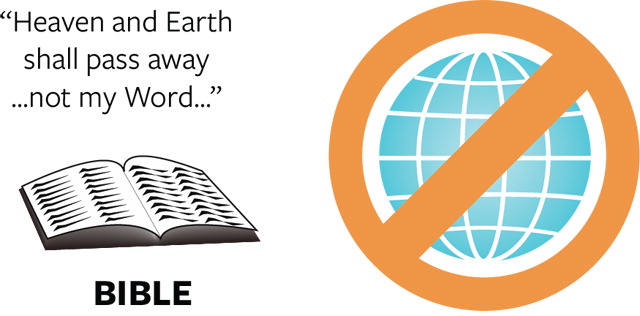As you prepare to start this lesson, pick up your Bible and thumb through the pages of the New Testament. Have you ever thought about its origin and how its twenty-seven books were collected together into one volume?
Since the first of the books was probably not written until about A.D. 50, the church did not have a "New Testament" for the first twenty years following our Lord's ascension. Instead, the early Christians relied on the Old Testament and the eye-witness accounts of His disciples.
Christianity began with the preaching of Jesus but was spread word-of-mouth by the faithful witness of His followers. Eventually the oral Gospel and the writings of the apostles to the churches were preserved for us in the books of the New Testament.
The New Testament grew book by book, beginning with the writings of Paul. As Paul established churches in new communities, he kept in touch with them by letter. Beginning with letters to the Thessalonians, Paul corresponded with his churches until his death. He letters were copied, compiled, and circulated among the churches until they became known throughtout the Christian communities.
As the years passed and the number of living eye-witnesses became fewer, the Gospels were written to preserve their accounts. Mark wrote his Gospel first, followed by Matthew, Luke, and John.
In addition to Paul's letters and the Gospels, other epistles, the Book of Acts, and the Book of Revelation soon appeared until the church had in its possession all the books of our New Testament by the close of the first century.
These twenty-seven books, however, represent only a few of the numerous writings produced by the early Christians, many of which attempted to reinterpret the sayings and teachings of Christ. For more than two hundreds years, the church fathers could not decide which of those works should be considered written under the guidance and inspiration of the Holy Spirit and thus be approved for reading in the public services of the church. The need for unity in belief and practice among Christians eventually led the fathers to separate the writings that were in harmony with the teachings of Jesus from those that were not.
The authoritative list of books developed slowly and gradually under the influence of the Holy Spirit until by year 400 most Christians had accepted the twenty-seven books that now comprise our New Testament. Today almost all of Christianity -- Catholic and Protestant groups of many kinds -- have placed their approval upon them.

In 1874 the Scriptures were under severe attack by critics, and John W. Haley pubished a defense entitled, Alleged Discrepancies of the Bible. In the preface he wrote:
Finally, let it be remembered that the Bible is neither dependent upon nor affected by the success or failure of any book. Whatever may become of the latter, whatever may be the verdict passed upon it by an intelligent public, the Bible will stand. In the ages yet to be, when its present assailants and defenders are moldering in the dust, and when our very names are forgotten, (God's Word) will be, as it has been during the centuries past, the guide and solace of millions.
Authority Given the Apostles By Christ
What four things did Christ say the Holy Spirit would do for the apostles? (John 16:12-15) Why do you think the apostles could not know all the truth at that time, and how would they in the future?
What authority did Christ give the apostles? (John 17:18, 20:21)
On what basis did Christ select the apostles to bear witness of Him? (John 15:26-27, Luke 24:46-48)
How did Paul fit in according to Acts 9:3-6, Acts 26:13-15, and I Corinthians 15:7-9?
What authority did Christ give Paul? (Acts 26:15-18) How do we fit into this as witnesses?
The Apostles Wrote Under Christ's Authority
Paul. What does he call himself at the beginning of the book of Romans? From whom did Paul receive what he preached? (I Corinthians 11:23, Galatians 1:11-12) What was Paul's authority and purpose? (II Corinthains 5:20)
Read II Peter 3:15-16. What did Peter think about Paul's writings? What did he think about those who misuse the New Testament?
Writer of Hebrews. Where did the writer of Hebrews get his authority? (Hebrews 1:1-2 )
James. What did this half-brother of Jesus call himself? (James 1:1)
John. What does John claim as the authority for writing his epistles? (I John 1:1-3) How was Revelation written? ( Revelation 1:1)
Jude. What does this other half-brother of Jesus call himself in Jude 1? What do you think Paul, James, and Jude meant by saying they were bondservants of Christ?
Peter. What does he call himself? (I Peter 1:1) What does Peter make known? (II Peter 1:16)
On whose writings is the foundation of the church of Jesus Christ established? (Ephesians 2:20) What is the Gospel of Christ according to the apostles in Romans 1:16.
Why were the apostles confident they they wrote correctly about Christ? (II Corinthians 4:5-6)
Life Application
God has miraculously preserved His Word for us. Although this study should convince us that the New Testament is the Word of God, what is your greatest assurance that it is God's Word? (John 16:13, 8:47, 18:37)
How does the information in this lesson help you trust the Bible more than you may have in the past? How will you use the deeper trust in witinessing? Praying? Daily living?
Adapted fromThe 10 Basic Steps Toward Christian Maturity, by Bill Bright, co-founder of Campus Crusade for Christ. © Cru. All rights reserved.






